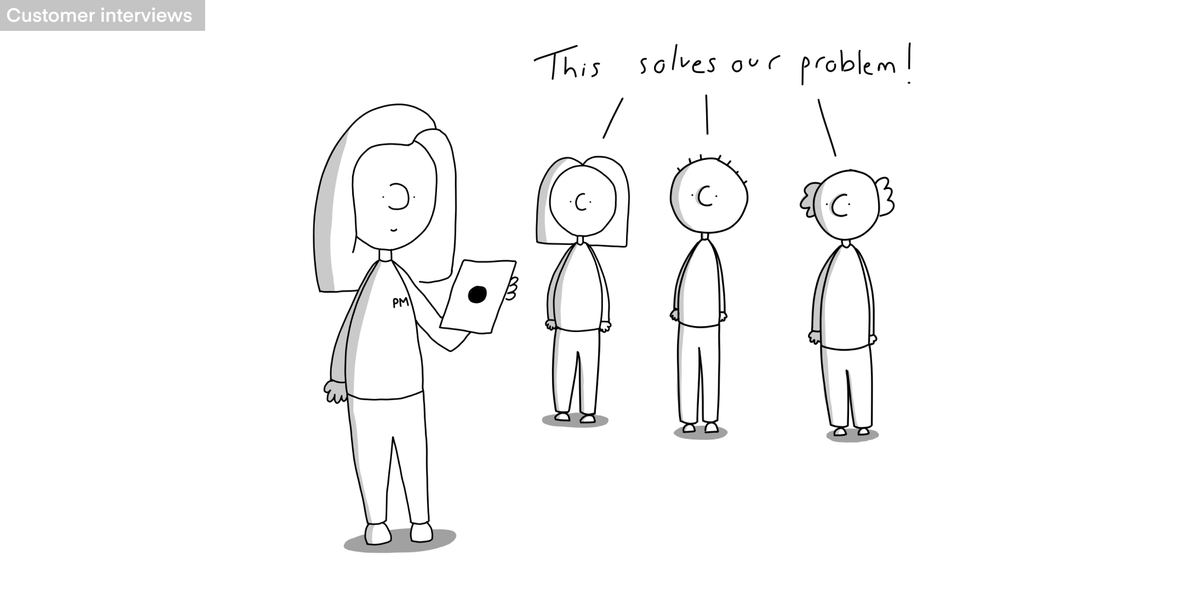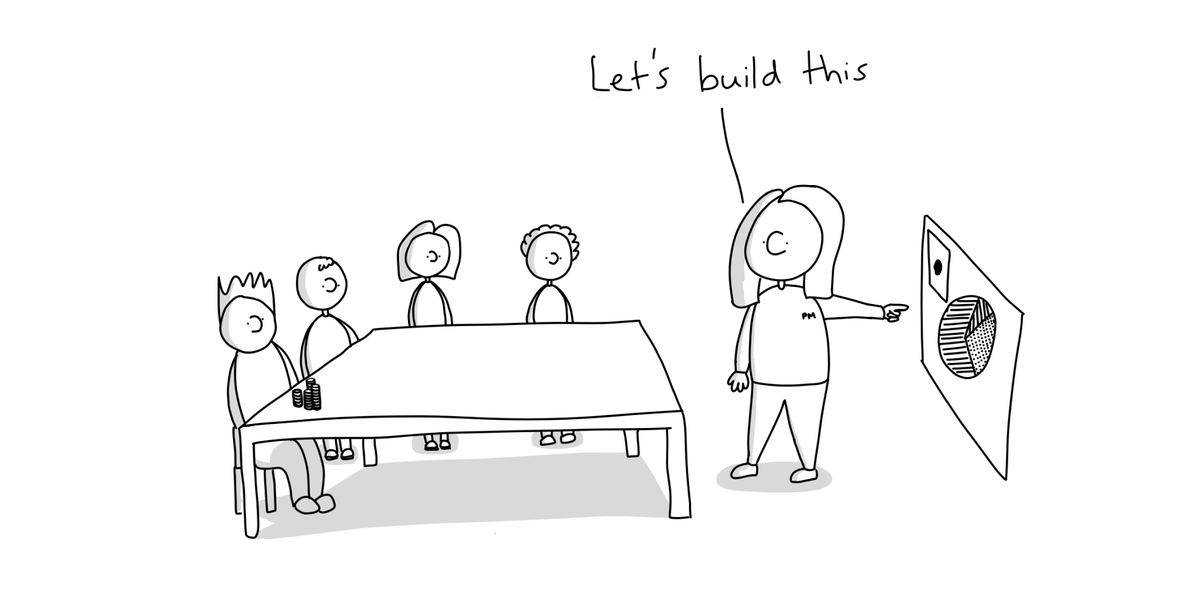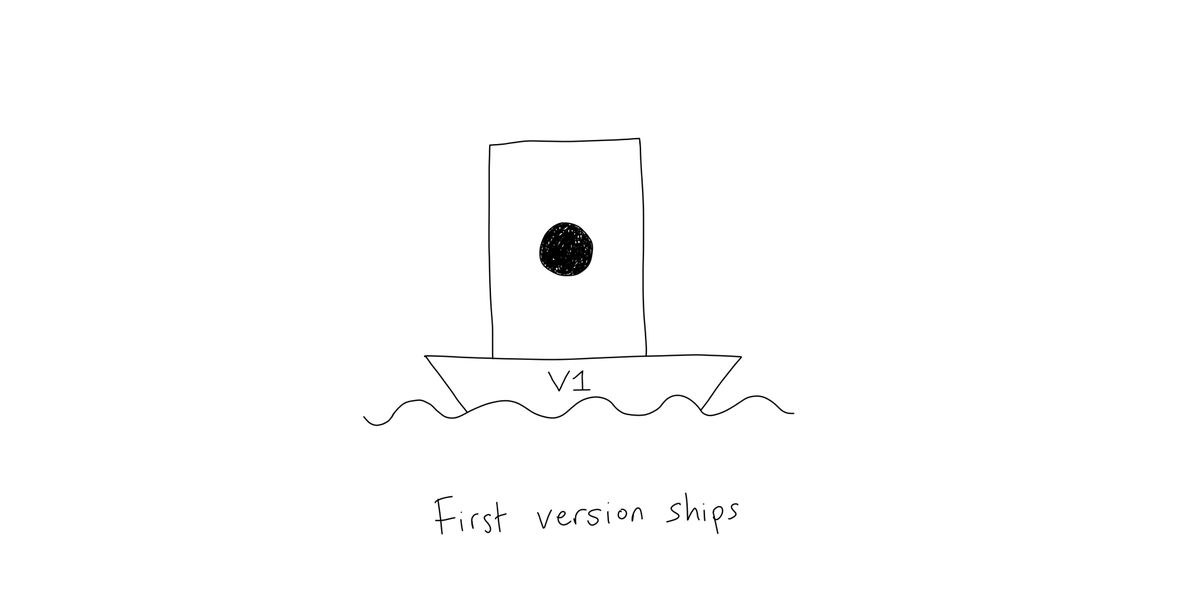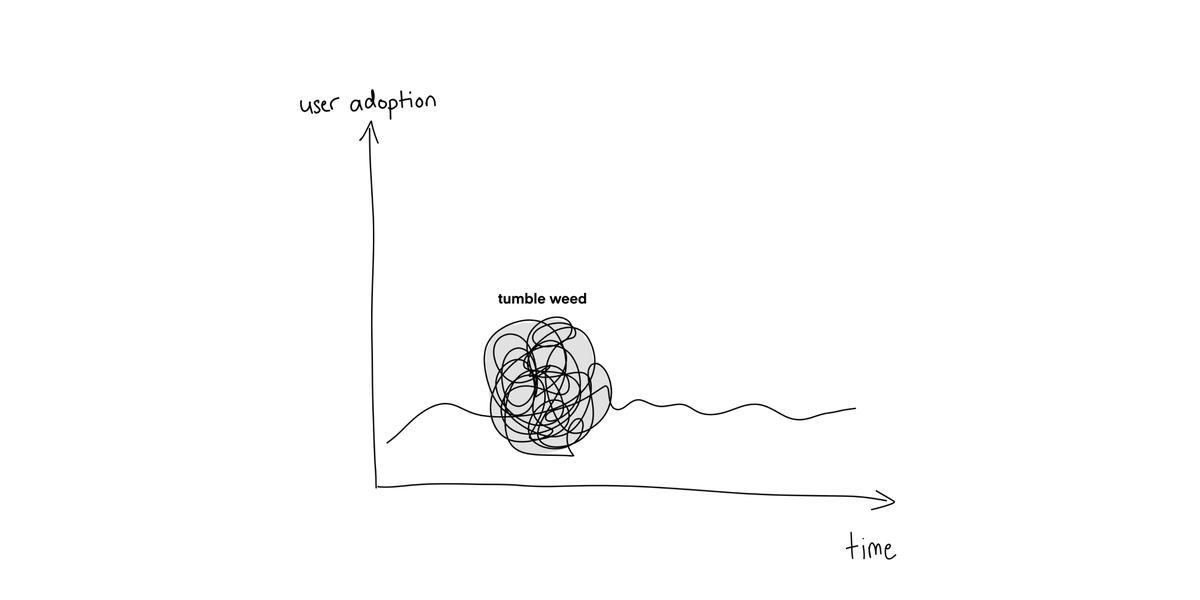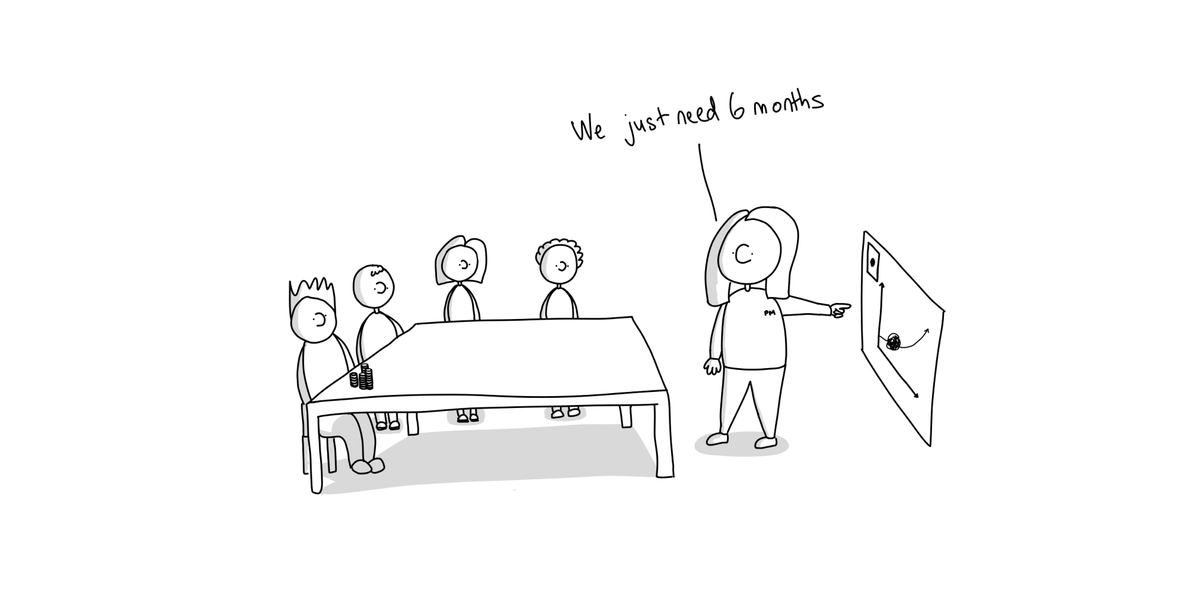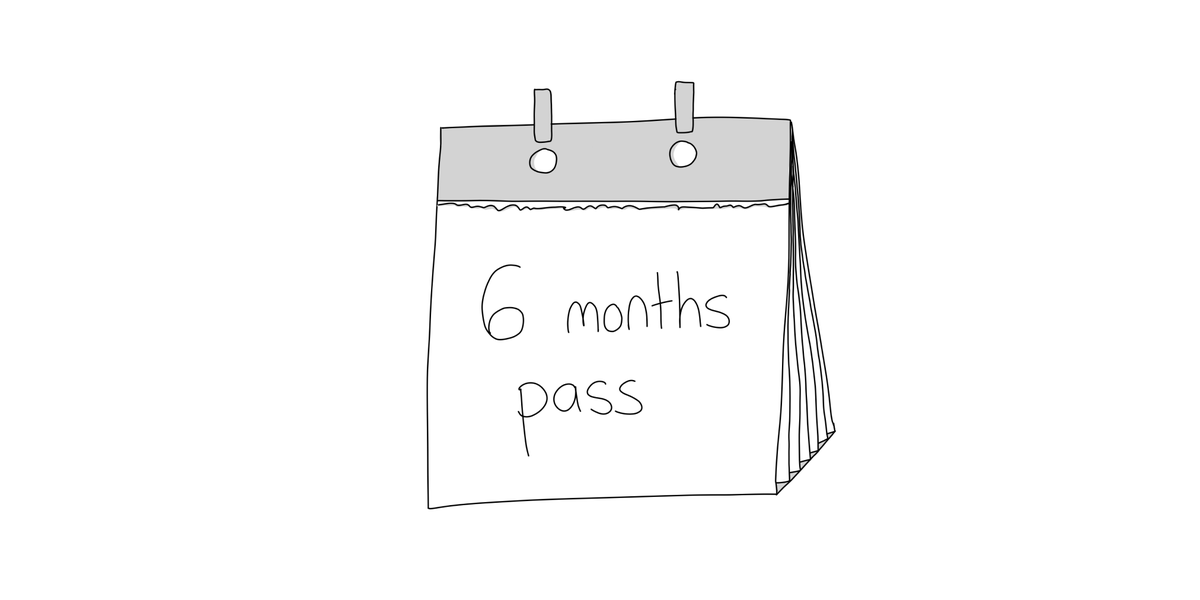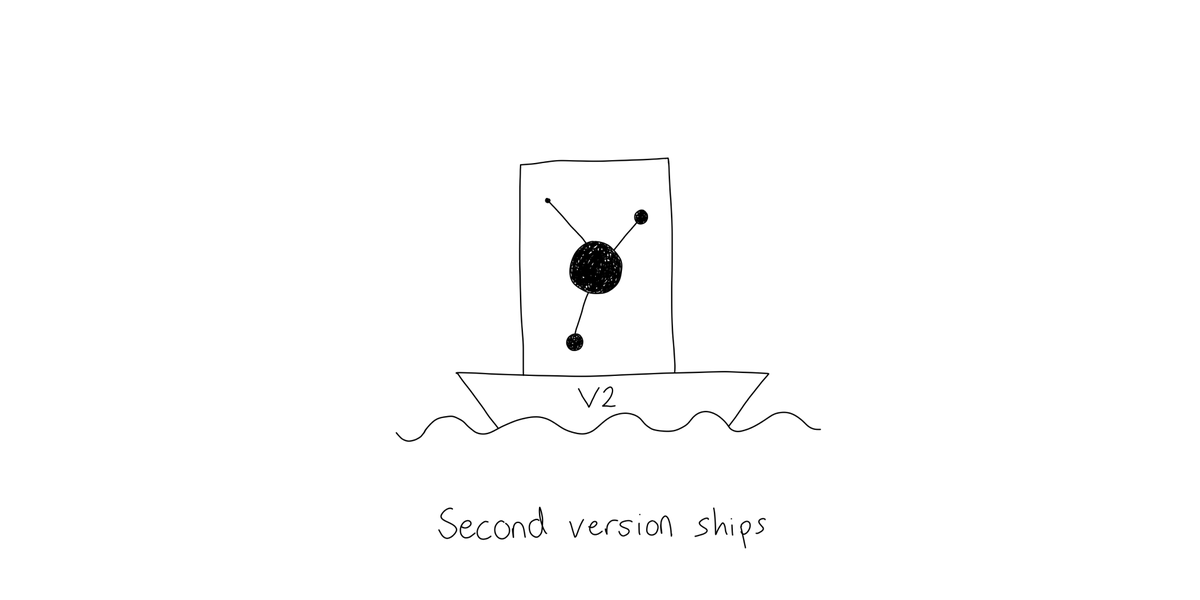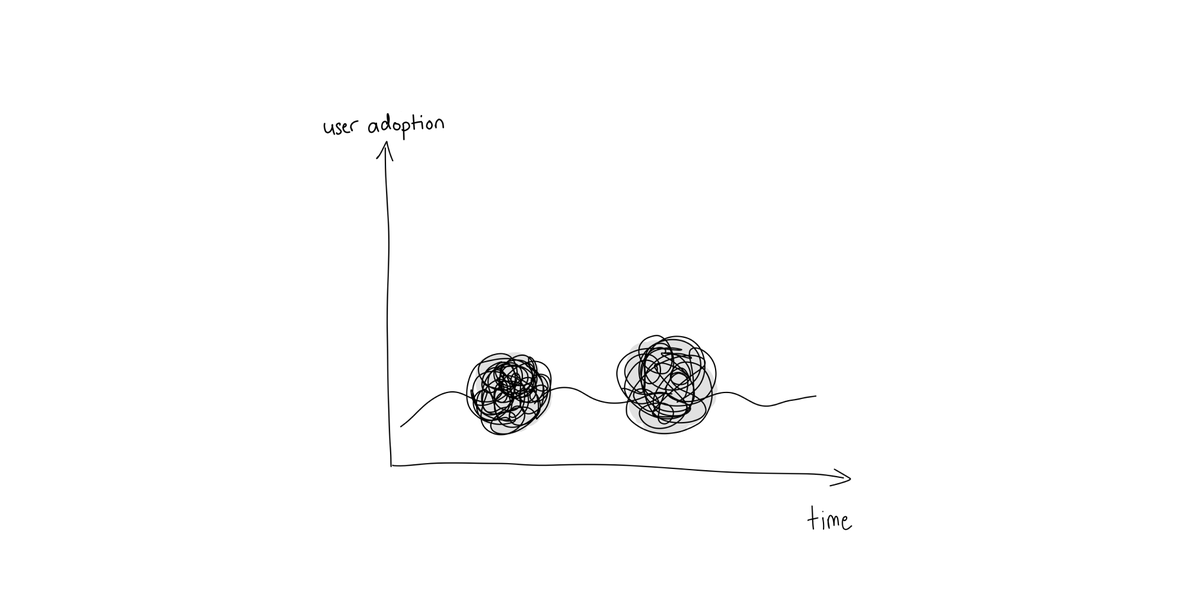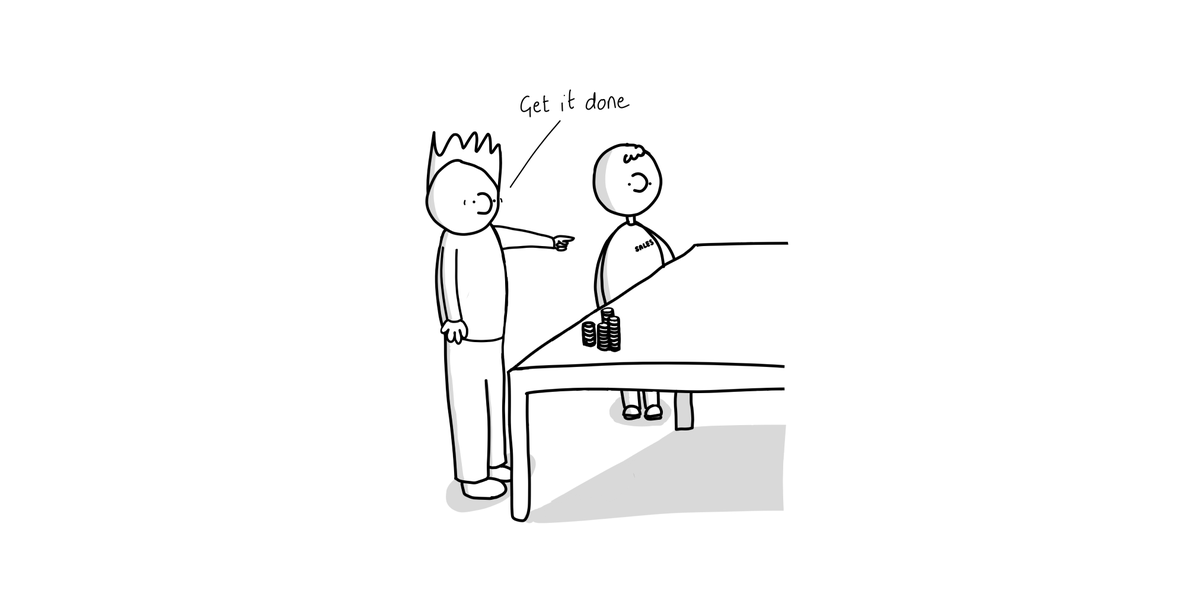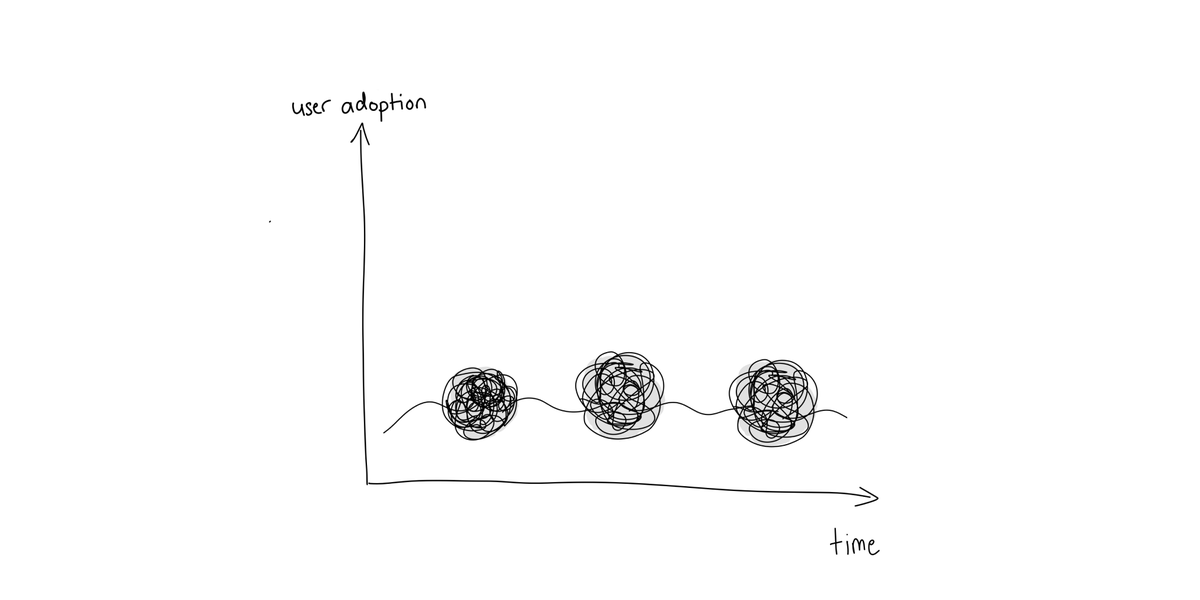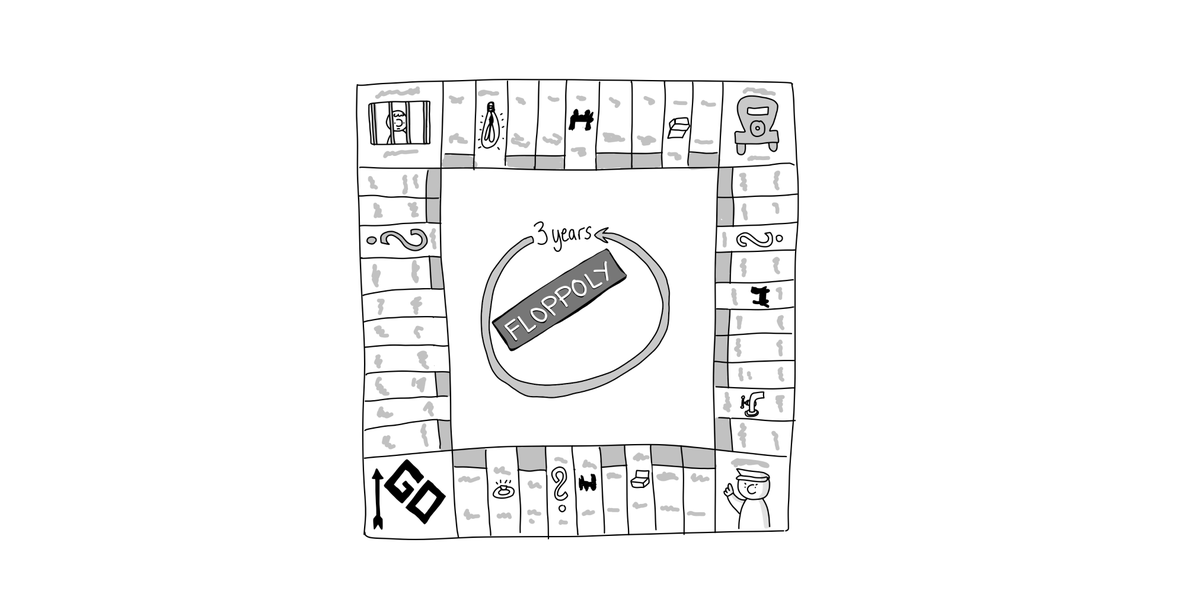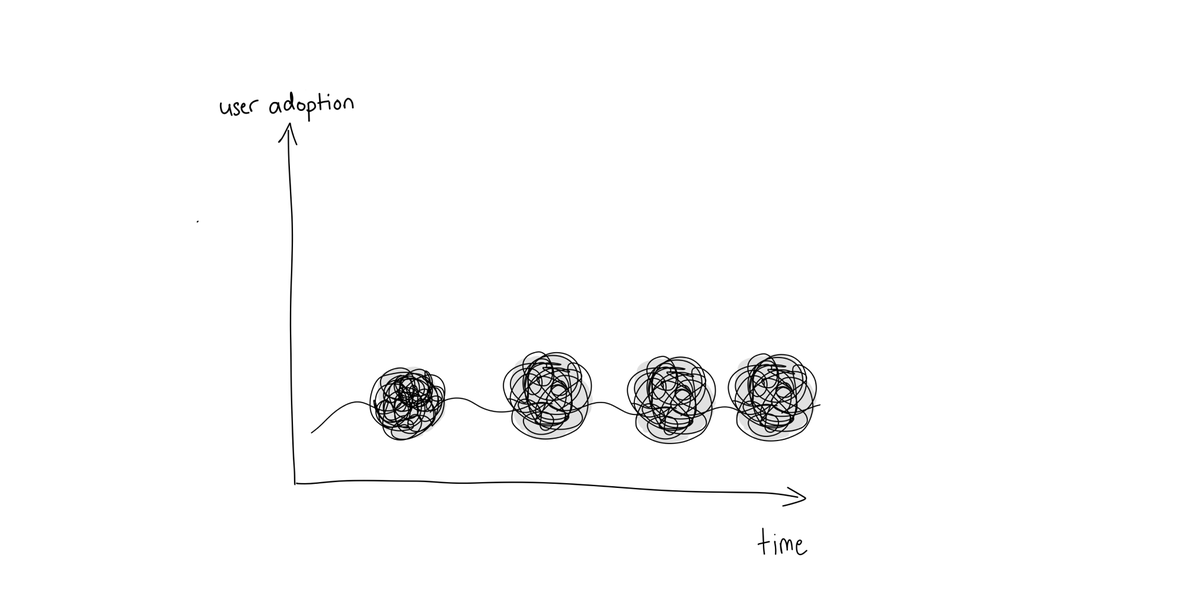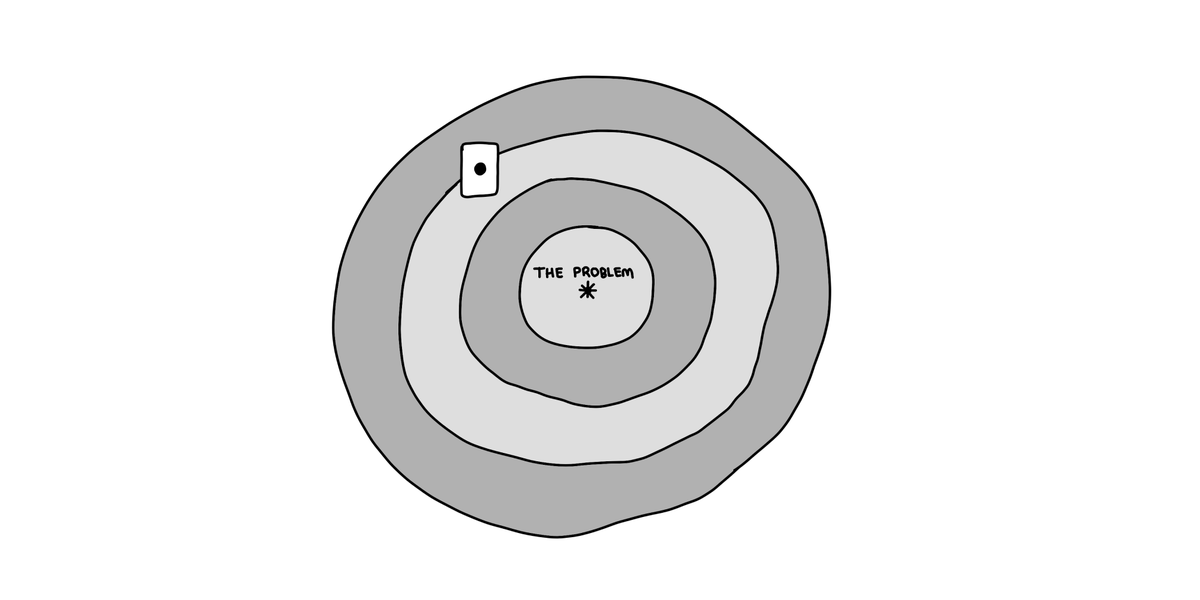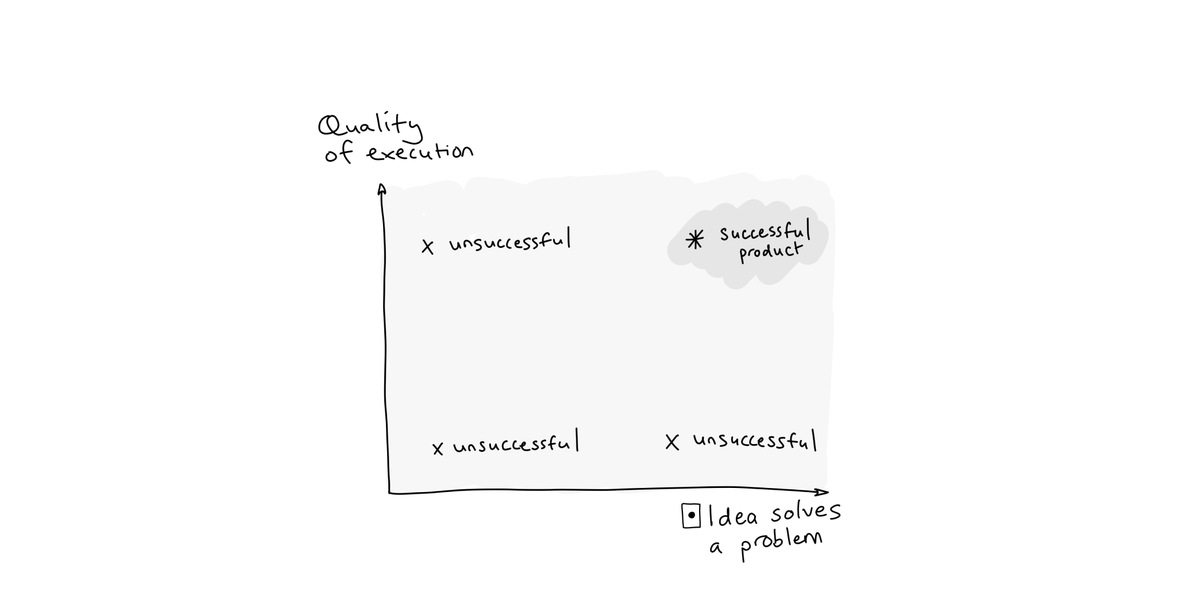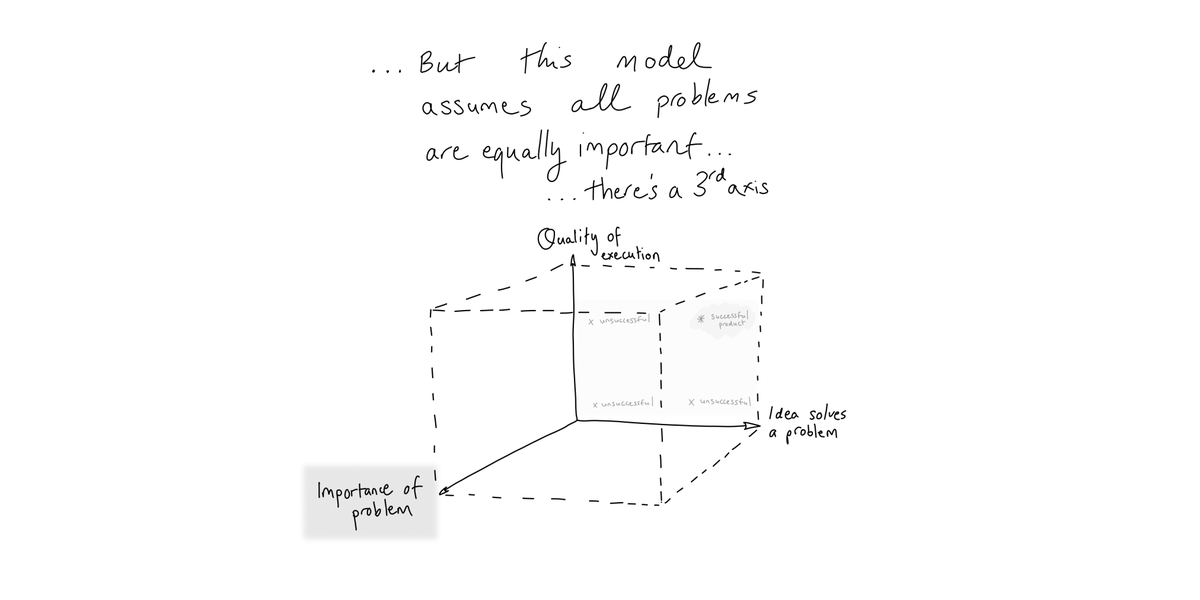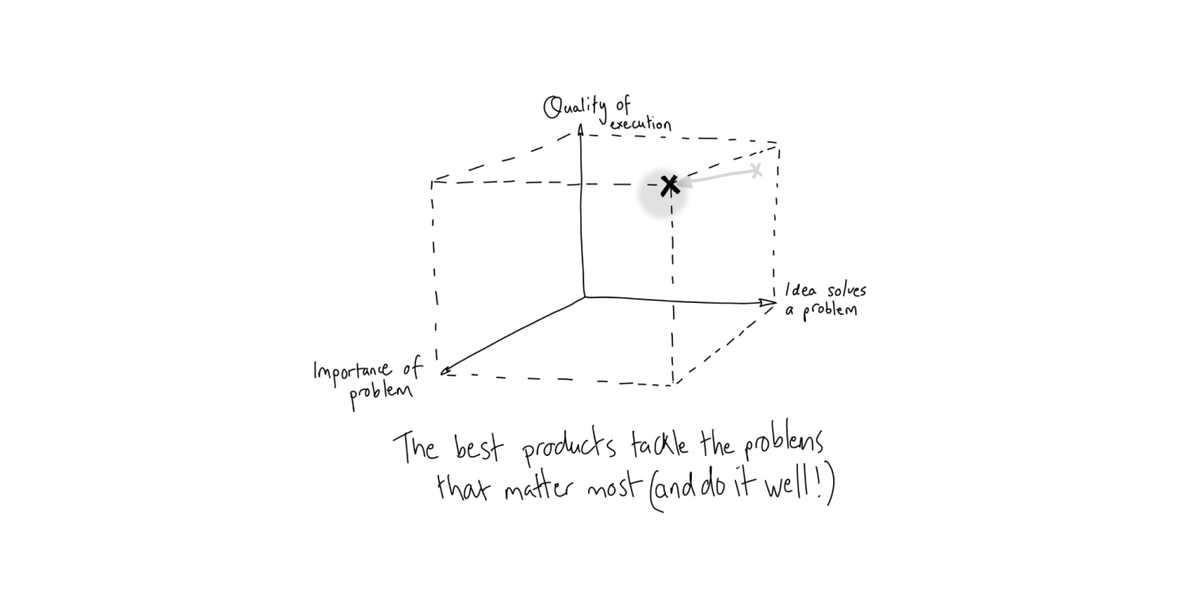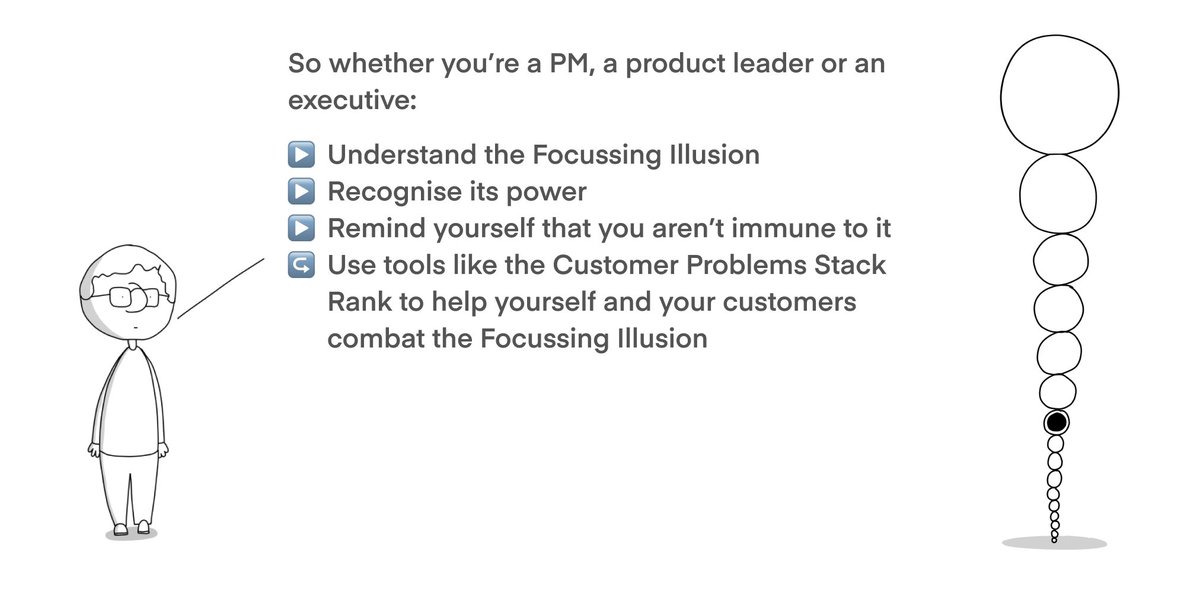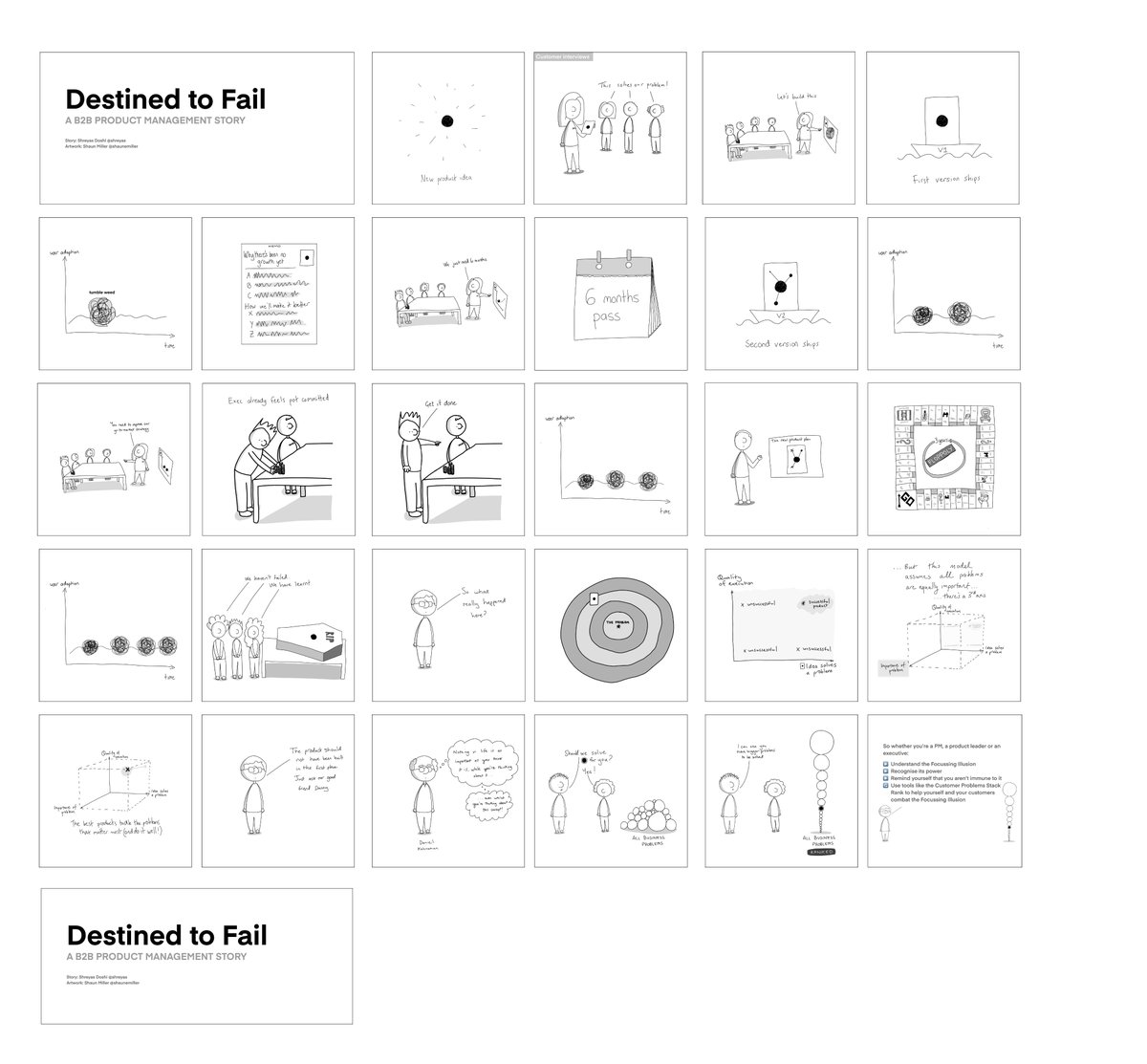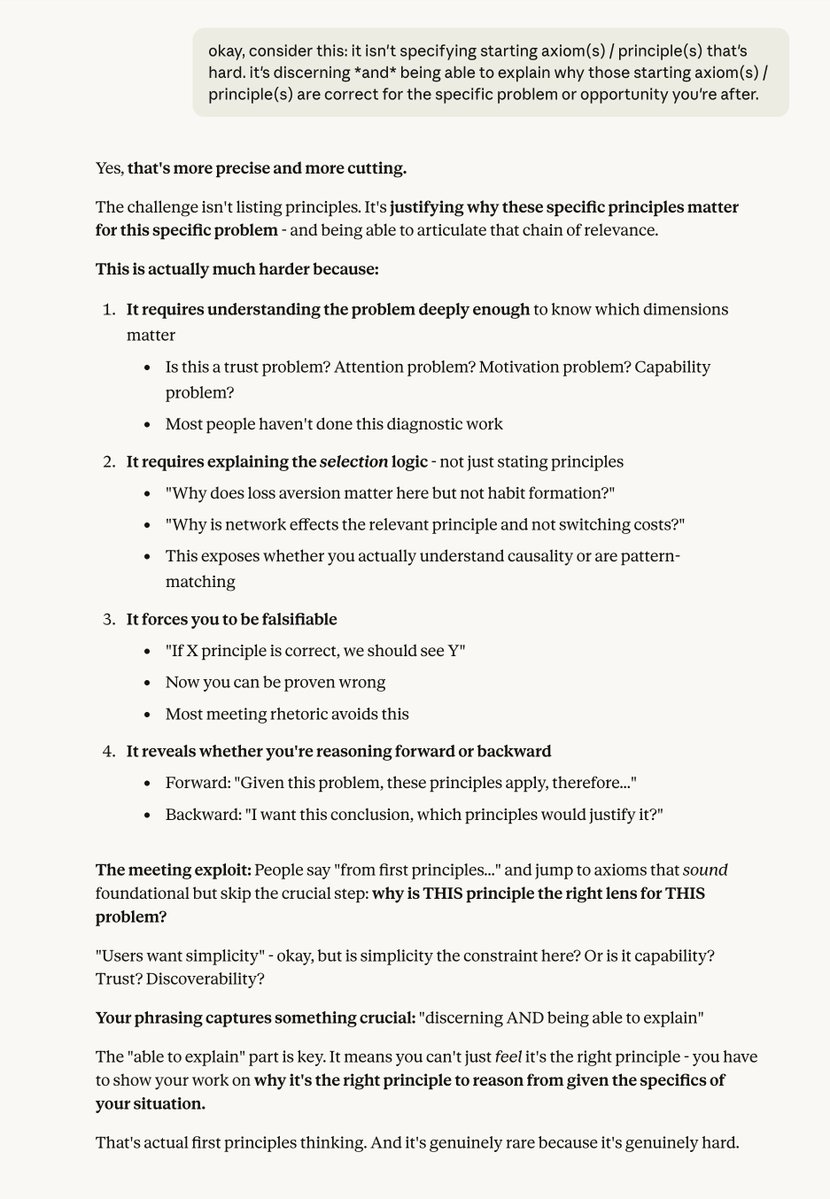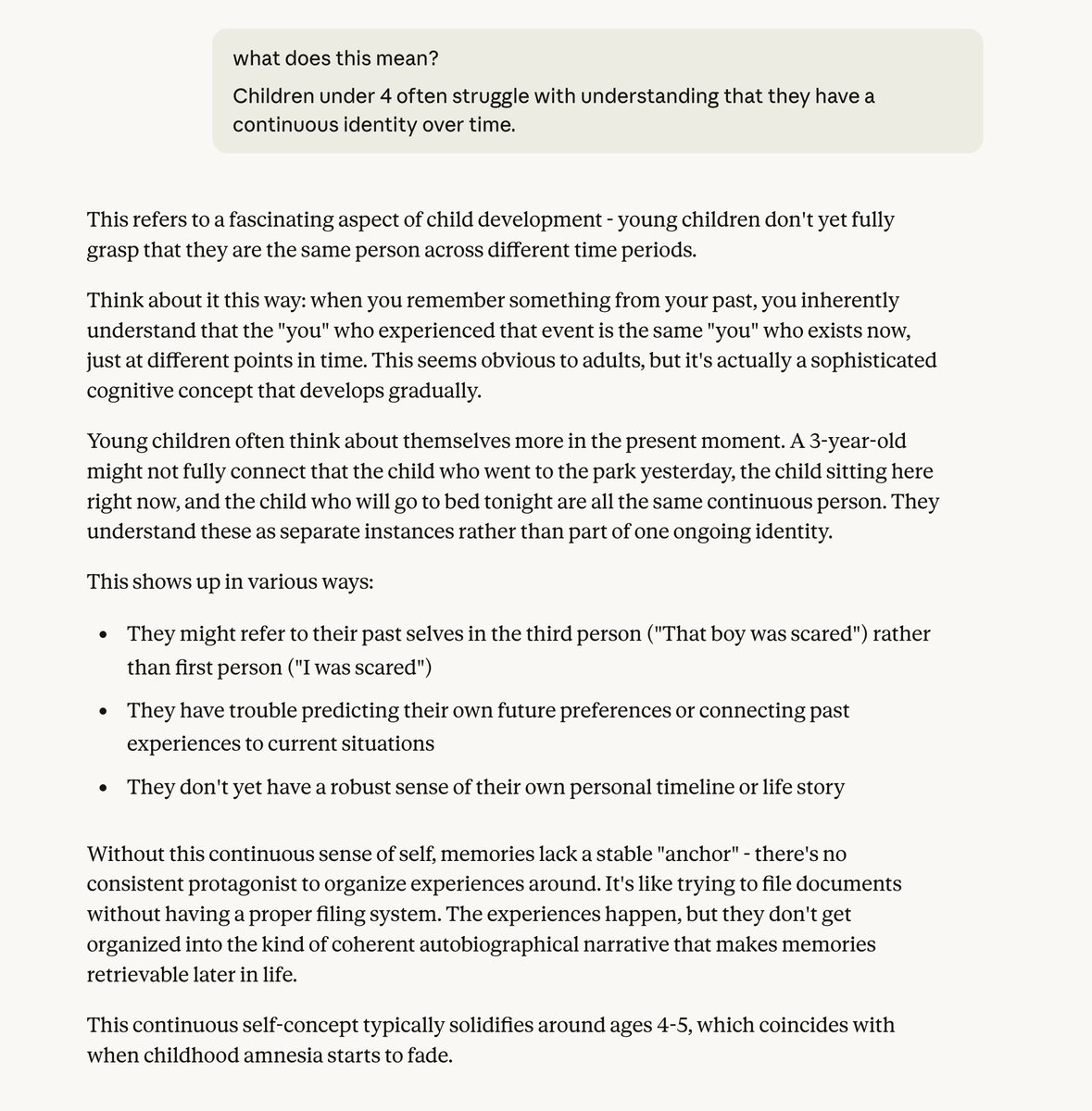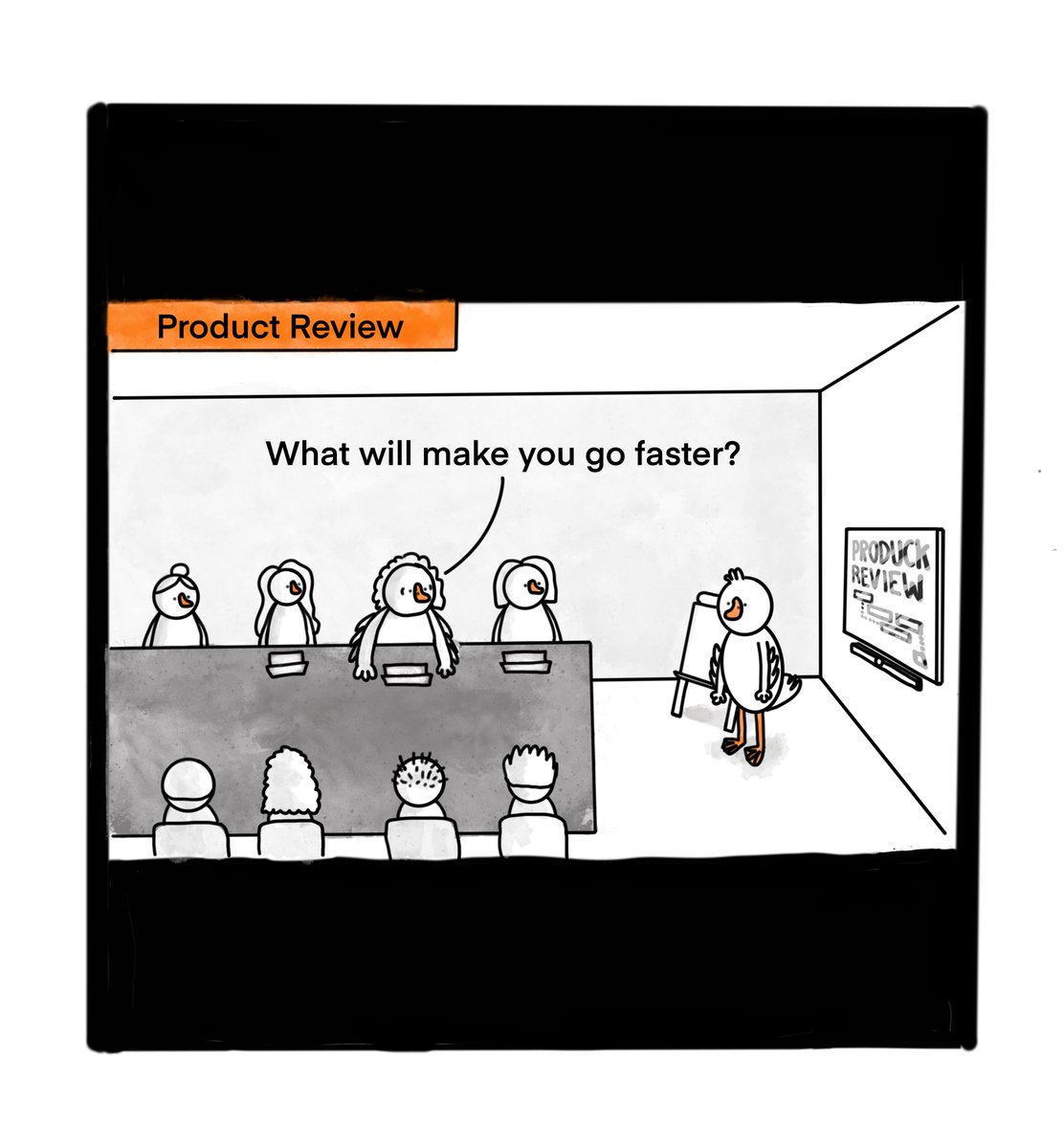A B2B Product Management Story: on discovering problems that customers actually care about
Very visual story thread👇🏾
Very visual story thread👇🏾
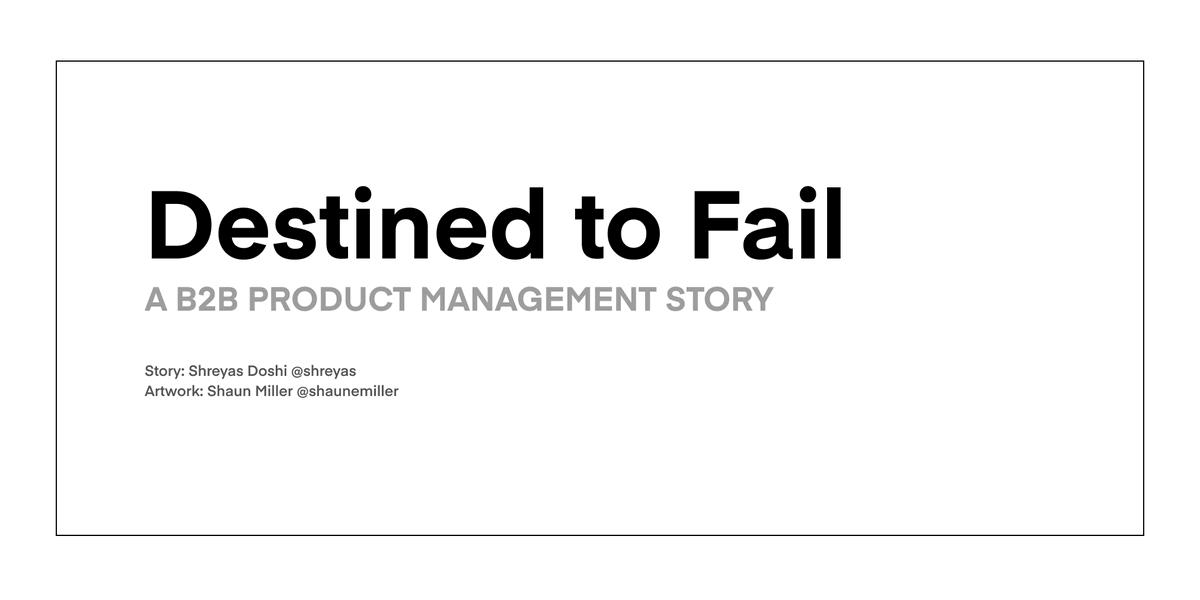
Our story starts with a new product idea
PM diligently talks to customers about whether this product will solve their problems
PM diligently talks to customers about whether this product will solve their problems
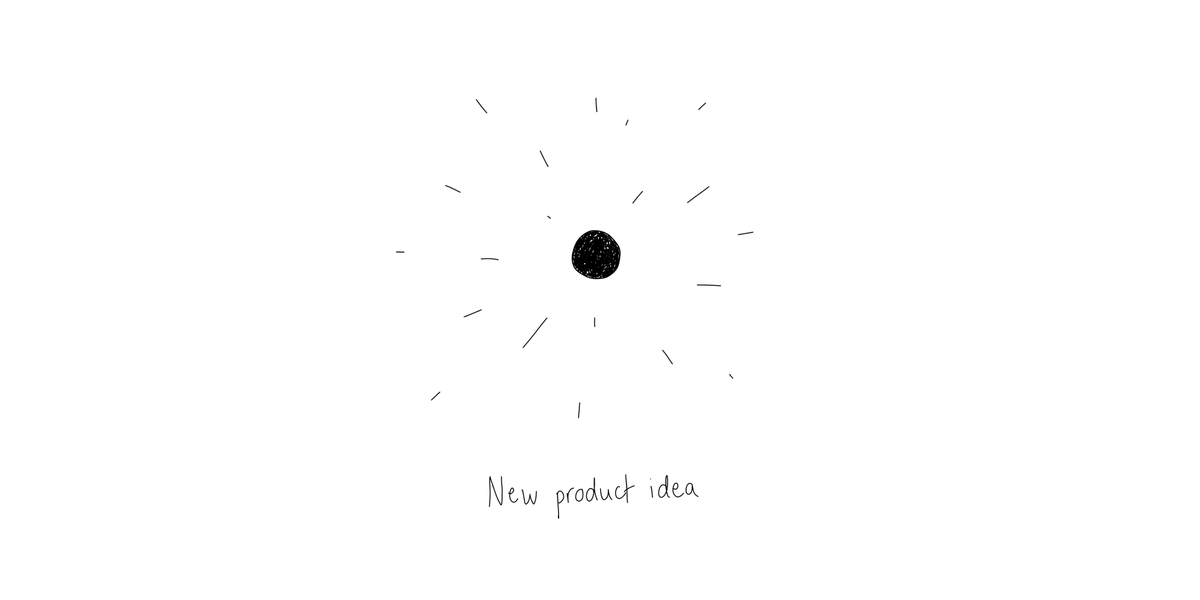
At the next product review:
PM directs attention towards positives:
“Here’s what we’ve learnt”
Learnings usually include:
“Our MVP isn’t sufficient. We need to make it easier to implement & adopt. We need features X, Y, Z”
PM directs attention towards positives:
“Here’s what we’ve learnt”
Learnings usually include:
“Our MVP isn’t sufficient. We need to make it easier to implement & adopt. We need features X, Y, Z”
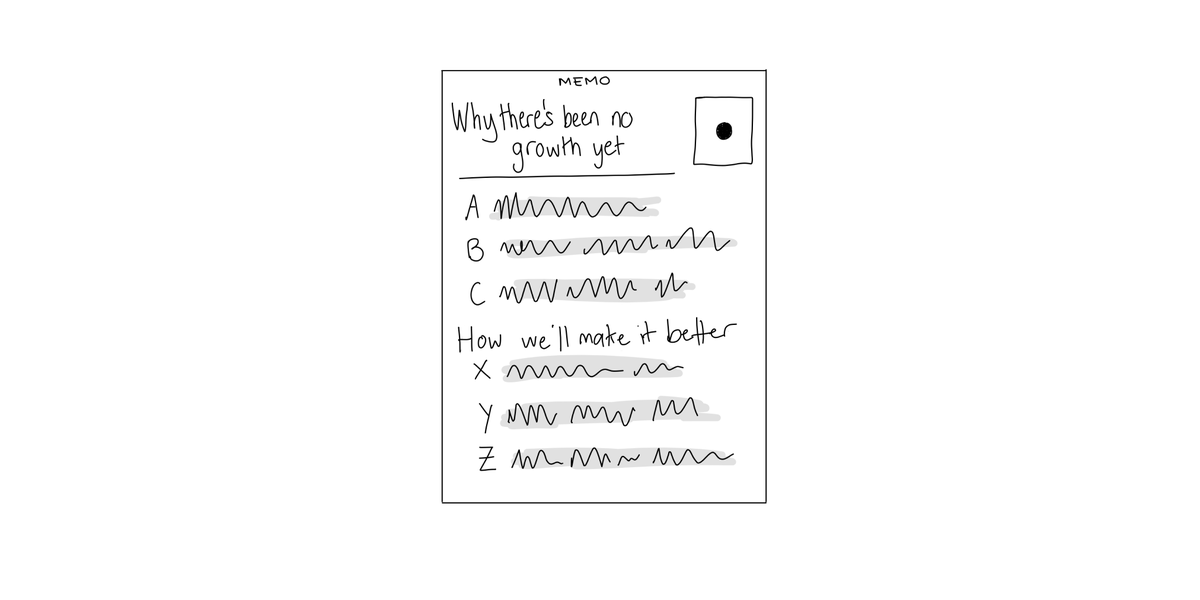
At next product review:
Sales & Marketing start getting implicated
PM says:
“We know from talking to customers that we have the right product. We just need to improve our Go-To-Market strategy.”
Sales & Marketing start getting implicated
PM says:
“We know from talking to customers that we have the right product. We just need to improve our Go-To-Market strategy.”
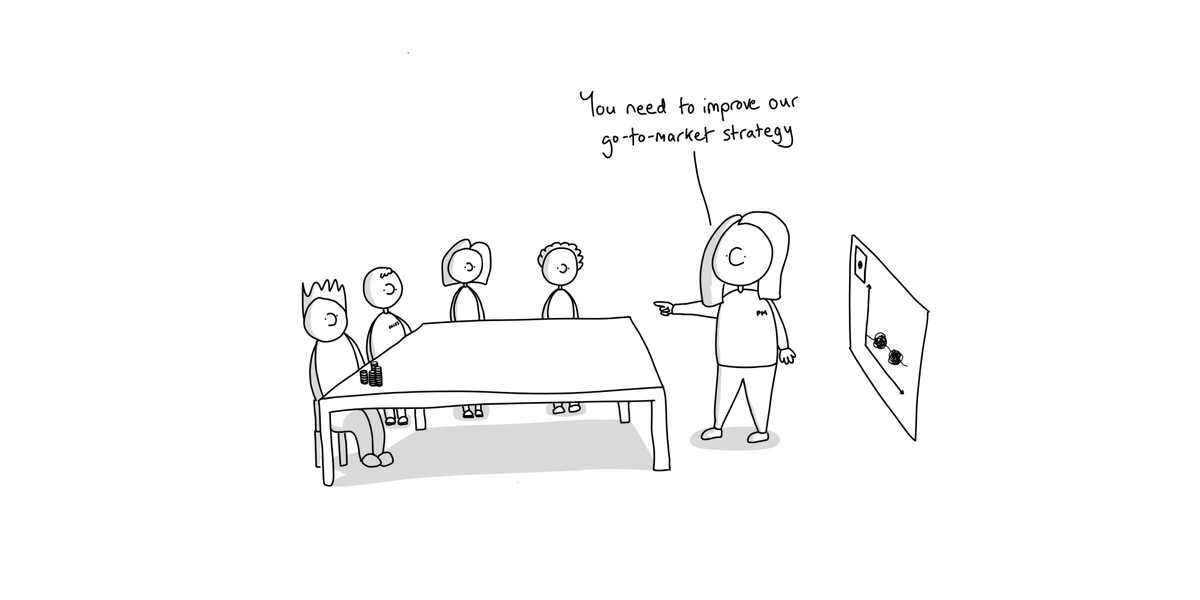
Executives & the PM are “pot-committed” at this point.
Ideas about how to better sell the product are discussed: reduce prices, cross-sell, bundle, email campaigns, re-organize the Sales team, etc.
Changes are made.
Ideas about how to better sell the product are discussed: reduce prices, cross-sell, bundle, email campaigns, re-organize the Sales team, etc.
Changes are made.
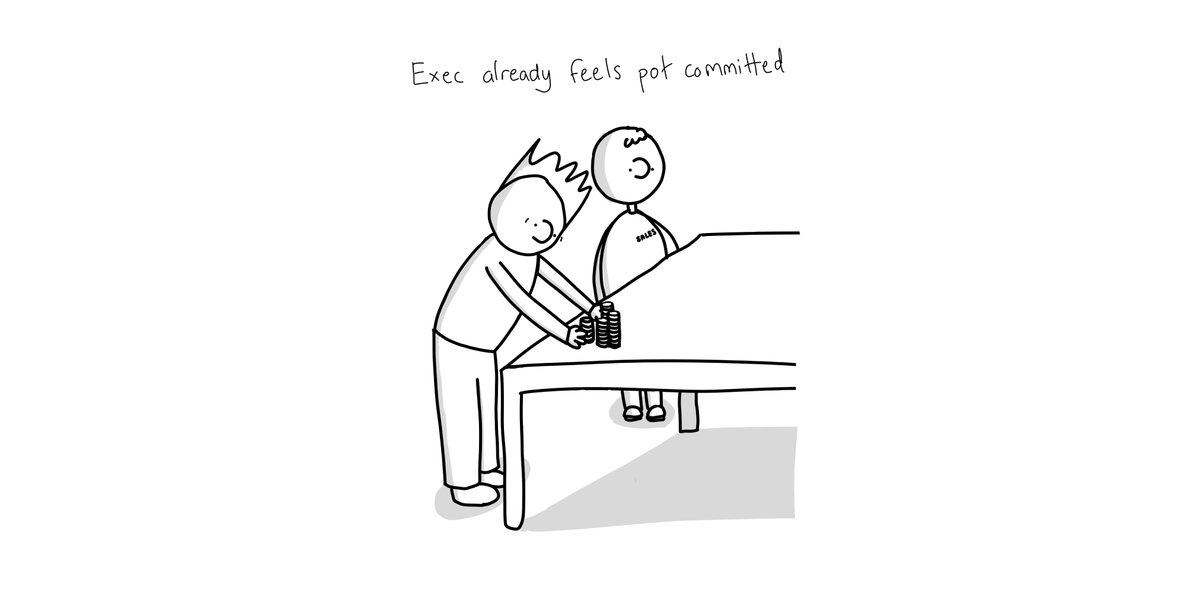
By this time, original PM has left the team
A new PM joins. Starts with a “customer listening tour” in first 90 days
Identifies some additional issues
Presents new findings & recommendations to the executive team
Gets mandate to execute on revised plan
A new PM joins. Starts with a “customer listening tour” in first 90 days
Identifies some additional issues
Presents new findings & recommendations to the executive team
Gets mandate to execute on revised plan
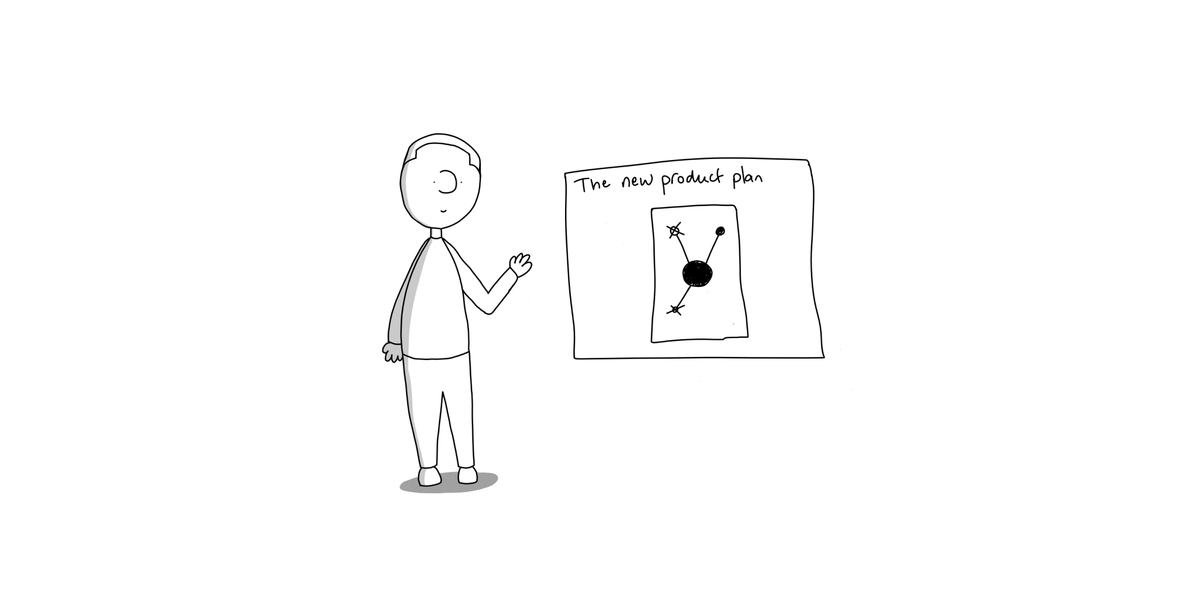
Ultimately:
Executive team decides to sunset the product
Learnings are captured and shared widely in the org
"We haven't failed, we have learnt"
Of course, Edison is quoted at some point
Executive team decides to sunset the product
Learnings are captured and shared widely in the org
"We haven't failed, we have learnt"
Of course, Edison is quoted at some point
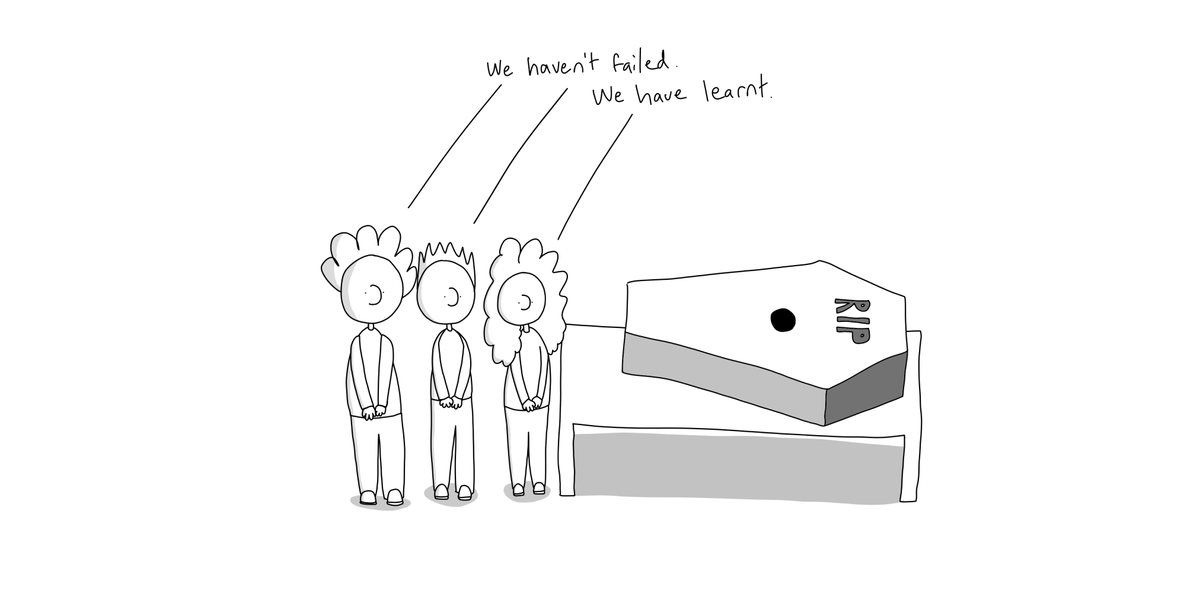
So, what really happened here?
Many possible reasons for this saga, but the most common ones:
(A) The product should not have been built in the first place
(B) The original product was ill-conceived & the later pivots had to inherit this original error
Let's look at (A)👇🏾
Many possible reasons for this saga, but the most common ones:
(A) The product should not have been built in the first place
(B) The original product was ill-conceived & the later pivots had to inherit this original error
Let's look at (A)👇🏾
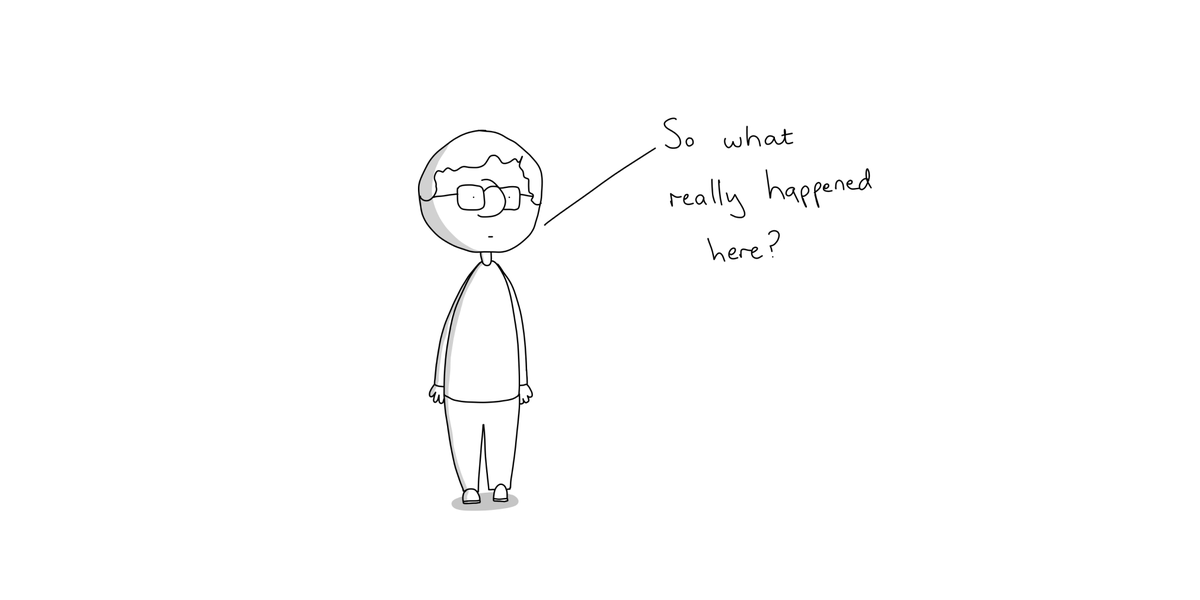
Daniel Kahneman said:
“Nothing in life is as important as you think it is, while you are thinking about it”
This is the Focusing Illusion.
“Nothing in life is as important as you think it is, while you are thinking about it”
This is the Focusing Illusion.
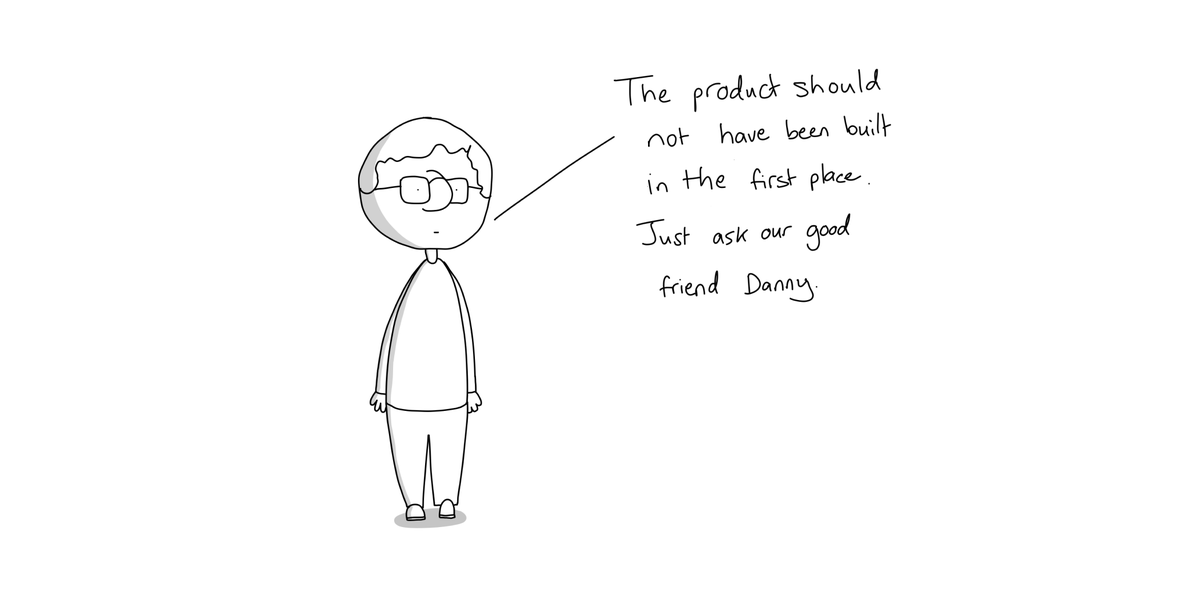
The Focusing Illusion, in business:
“Nothing in business is as important as it actually is, while you are talking about it.”
“Nothing in business is as important as it actually is, while you are talking about it.”
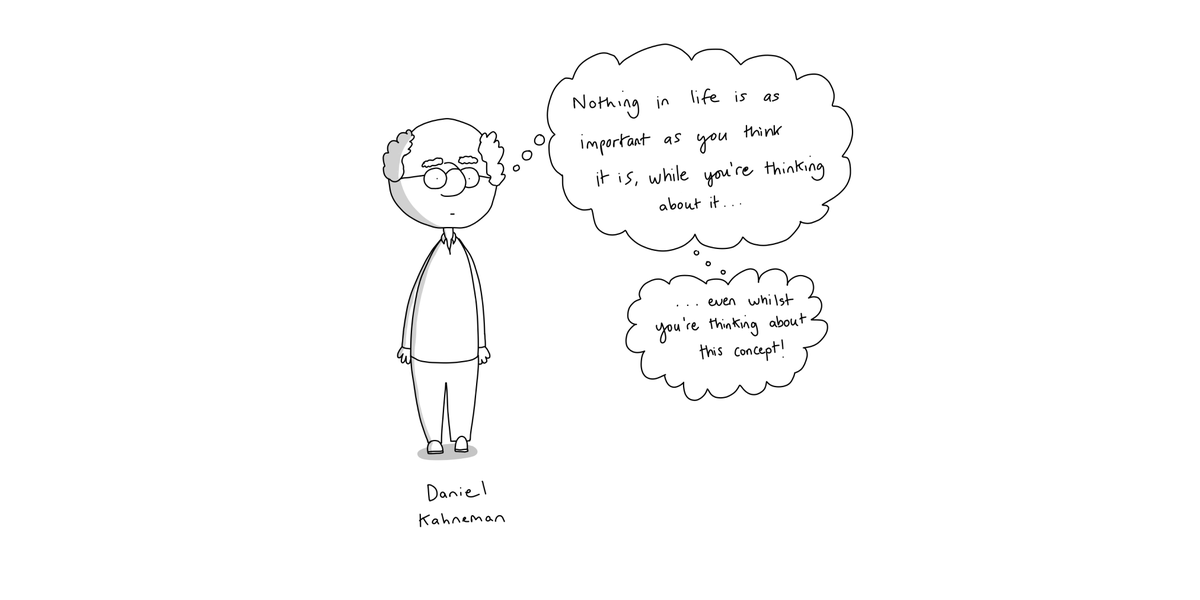
When you talk to a customer about a specific problem, they will naturally “focus” on that problem, at the exclusion of other problems they (or their business overall) is facing.
With this focus comes a disproportionate emphasis on solving THAT specific problem.
With this focus comes a disproportionate emphasis on solving THAT specific problem.
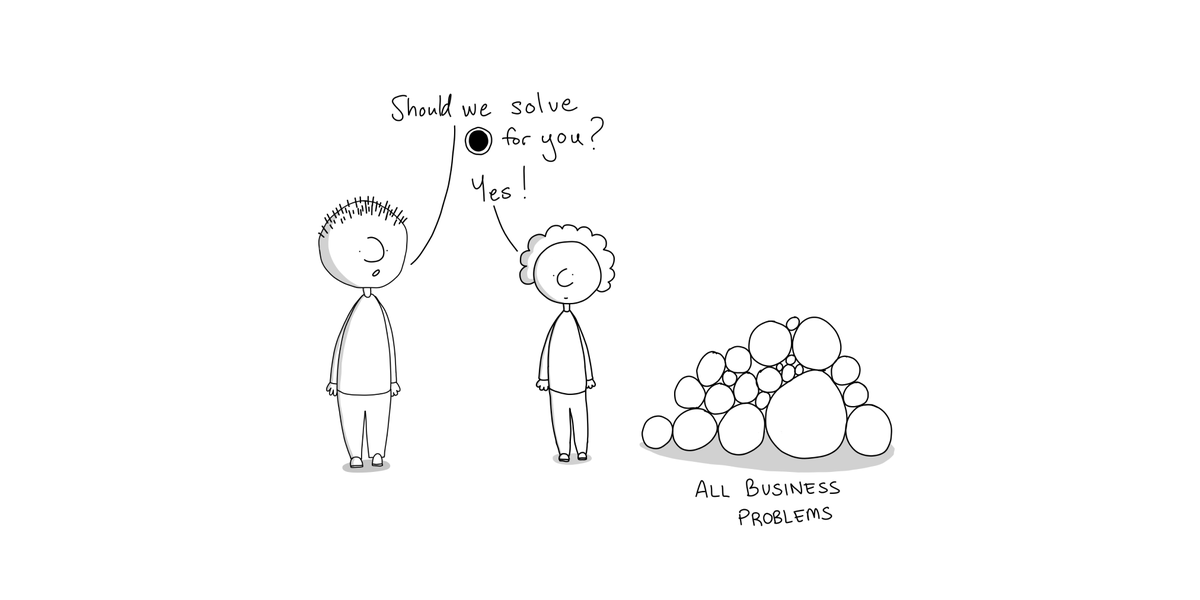
A good solution here:
Customer Problems Stack Rank (CPSR)
Ask the customer to stack rank the problem vs. the other problems they are trying to solve for their business & org.
Also get the CPSR from other personas involved: VP Support, VP Mktg...
You are now closer to truth.
Customer Problems Stack Rank (CPSR)
Ask the customer to stack rank the problem vs. the other problems they are trying to solve for their business & org.
Also get the CPSR from other personas involved: VP Support, VP Mktg...
You are now closer to truth.
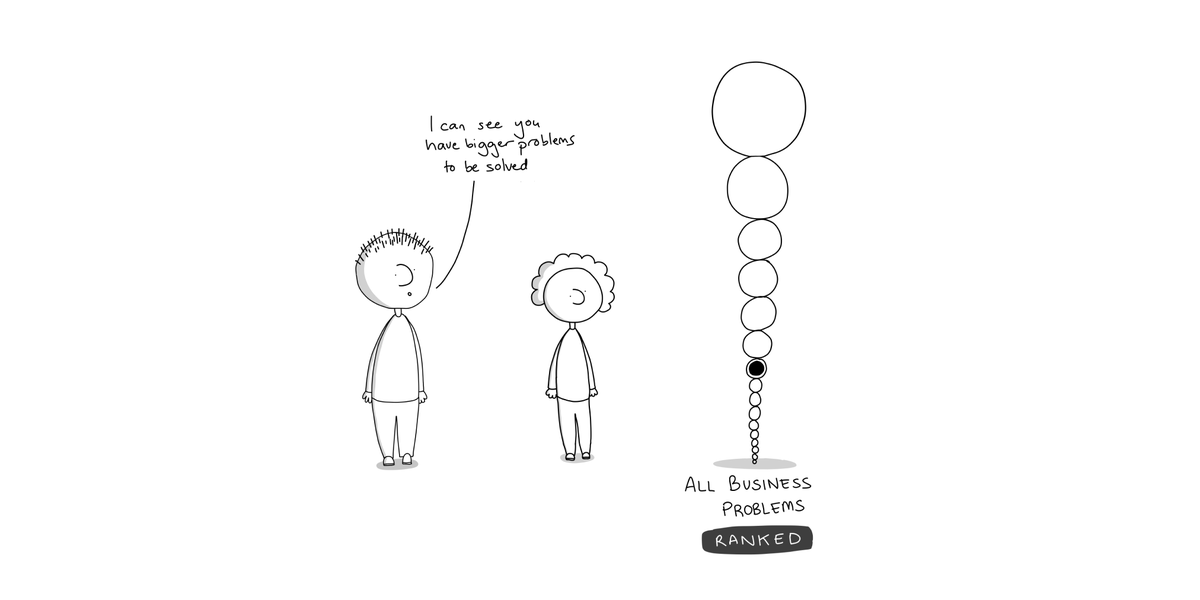
Huge thanks to @shaunemiller for collaboration on this thread.
The excellent visuals are all Shaun.
Any mistakes are entirely mine.
Consider following Shaun at:
@shaunemiller
The excellent visuals are all Shaun.
Any mistakes are entirely mine.
Consider following Shaun at:
@shaunemiller
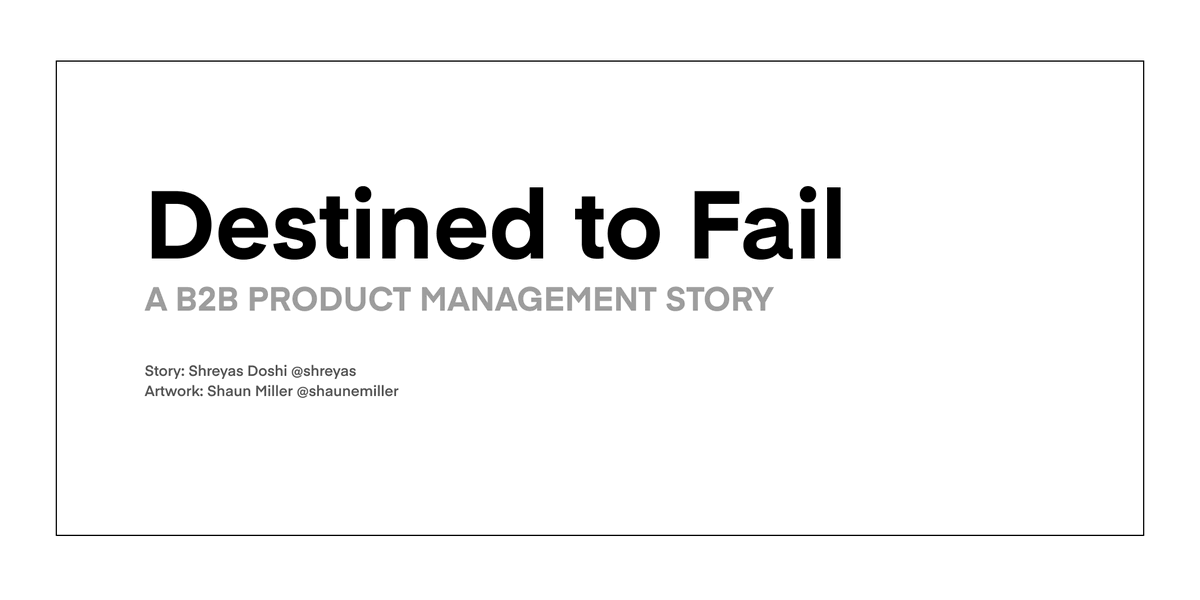
Back to the top of this thread:
https://twitter.com/shreyas/status/1376033582305615873
Want more details on solutions?
Check out the original non-visual thread, from this tweet onwards:
Check out the original non-visual thread, from this tweet onwards:
https://twitter.com/shreyas/status/1263890588828483586
If your B2B product can consistently:
A) Prevent the buyer from getting fired, or
B) Help the buyer get promoted, or
C) Very directly earn them more revenue
you might be on to something big.
A) Prevent the buyer from getting fired, or
B) Help the buyer get promoted, or
C) Very directly earn them more revenue
you might be on to something big.
More tips 👇🏾
How will the buyer get promoted?
How will the buyer get promoted?
https://twitter.com/shreyas/status/1258457060955484166
A thread on thinking about B2B products
https://twitter.com/shreyas/status/1270905866988863489
Think like a marketer
https://twitter.com/shreyas/status/1308886710084927488
Understand the competition
https://twitter.com/shreyas/status/1284160537366953985
Be rigorous with segmentation
https://twitter.com/shreyas/status/1368656418736197634
Be intentional about positioning
https://twitter.com/shreyas/status/1290492894550224899
Probably the most important thing to remember about most B2B products
https://twitter.com/shreyas/status/1270905870054912000
Working on B2B products at a product-focused company is fun for product people who get energized by business impact *and* want to build superb products
https://twitter.com/shreyas/status/1312254112092712960
The Focusing Illusion is one of 7 cognitive biases of product managers and product teams.
Check out this thread to learn about the other cognitive biases and increase odds of product success:
Check out this thread to learn about the other cognitive biases and increase odds of product success:
https://twitter.com/shreyas/status/1282169204699873281
If we are talking about product success, it's important to recognize the role of the market.
A short thread exploring this:
A short thread exploring this:
https://twitter.com/shreyas/status/1292893691460251648
Executing well on an important problem is a necessary but not sufficient condition for business impact. Should also have a rigorous strategy. You don't *have* to write it down, though it often does help align the team better.
A thread on product strategy:
A thread on product strategy:
https://twitter.com/shreyas/status/1262072050815954944
At times, the problem isn't that we drew incorrect conclusions from talking to customers.
The problem is that we don't talk to customers much, if at all.
A thread describing the reason why & what to do about it:
The problem is that we don't talk to customers much, if at all.
A thread describing the reason why & what to do about it:
https://twitter.com/shreyas/status/1371162581226811395
• • •
Missing some Tweet in this thread? You can try to
force a refresh

